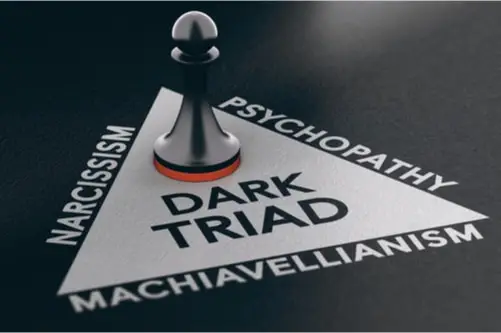People with narcissism can display excessive self-admiration or self-interest. They feel entitled to anything they desire and react very negatively to criticism.
Narcissistic personality disorder traits are something many of us may exhibit from time to time. We’ve all encountered someone who seems overly self-centered or difficult to deal with. However, when these traits become extreme and pervasive, they may indicate Narcissistic Personality Disorder (NPD). Those with NPD have an exaggerated sense of self-importance, often requiring excessive admiration and showing little regard for others’ feelings.
In this blog, we’ll explore what NPD is, how to identify it, and ways to protect yourself from narcissistic abuse. Understanding these dynamics can help you maintain your well-being while navigating relationships with individuals who exhibit narcissistic traits.
What is narcissistic personality disorder (NPD)?
Narcissism has become a widely discussed topic in the media, but it’s important to distinguish between common self-centered behaviors and Narcissistic Personality Disorder, a clinically recognized mental health condition. NPD is characterized by an excessive need for admiration, a sense of entitlement, and a lack of empathy for others. Individuals with this disorder often react poorly to criticism and may struggle to maintain healthy relationships.

It’s also crucial to understand that not everyone who displays narcissistic behavior has NPD. Misunderstandings can lead to unfair labeling of people who are simply selfish, socially inept, or in the wrong relationship. NPD requires a diagnosis by a licensed psychiatrist or mental health professional.
How to spot someone with narcissism
Psychologists have identified specific criteria that can help determine whether someone may have NPD. According to the Diagnostic and Statistical Manual of Mental Disorders (DSM-5), an individual must exhibit at least five of the following traits to be diagnosed with NPD:
Here are some of the red flags to look out for:
- A grandiose sense of self-importance
- Preoccupation with fantasies of unlimited success, power, or beauty
- Belief that they are special and unique
- Need for excessive admiration
- A sense of entitlement
- Exploiting others to achieve their own goals
- Lack of empathy
- Envy of others or belief that others are envious of them
- Arrogant or haughty behaviors or attitudes
People with narcissism usually also display traits of psychopathy and Machiavellian behaviors (Machiavellianism). This makes them aggressive, opportunistic, and callous with a lack of remorse for any wrongdoing. A relationship with a narcissist can leave you feeling used, manipulated, and drained.

Psychologists have identified two types of Narcissists: vulnerable and grandiose. The vulnerable narcissist has a weak inner core. They tend to project high self-esteem to mask this.
The grandiose narcissists believe they are better than other people. These individuals may even have genius tendencies. In this case, grandiose narcissists tend to be more agreeable and extroverted.
On the other hand, vulnerable narcissists are less agreeable and less emotionally stable. They also have higher tendencies of psychopathy and Machiavellianism.
It’s important to remember that only a qualified mental health professional can diagnose NPD. These traits may help you recognize when someone could be struggling with this disorder, but they should not be used for self-diagnosis or labeling others.
Narcissistic abuse & the biggest danger of people with narcissism disorder
Narcissistic abuse occurs when someone with NPD manipulates others to fulfill their own needs for validation, admiration, or control. This can lead to significant emotional distress for the victim, including lowered self-esteem, anxiety, and depression. In severe cases, it can even result in post-traumatic stress disorder (PTSD).
Narcissistic abusers often isolate their victims from friends and family, gaslight them by distorting reality, and become angry or abusive when their demands for attention and admiration are not met. Recognizing these patterns is the first step in protecting yourself.
Tools of manipulation: How narcissists maintain control
Individuals with narcissistic traits often use specific tactics to manipulate and control others. You may be able to cut off a narcissistic friend but it’s way harder to cut ties with a relative or colleague. In these cases, you’ll need to learn how to successfully deal with the person. Being aware of these tools can help you protect yourself:
- Love bombing: This involves showering someone with excessive attention, flattery, and gifts to lower their boundaries and gain control.
- Silent treatment: When they don’t get their way, narcissists may use the silent treatment to make their victims feel distressed and desperate for attention.
- Boundary testing: Narcissists often ignore personal boundaries, taking advantage of others’ kindness or invading their privacy without remorse.
- Gaslighting: This severe form of manipulation causes the victim to question their own reality, leading to confusion and self-doubt.
Protecting yourself from narcissistic abuse
If you find yourself in a relationship with someone exhibiting narcissistic traits, it’s important to take steps to protect your mental health. Here are some strategies to consider:
- See them for who they are: Pay attention to the red flags. Narcissists may not always maintain their perfect facade, and their true nature will eventually show. Acknowledge this reality and decide if you want to continue the relationship.
- Cultivate a strong sense of self: Build robust self-esteem by spending time on activities that help you understand and appreciate yourself. A strong sense of self will help you resist manipulation and maintain your boundaries.
- Set firm boundaries: Clearly communicate your expectations and establish consequences for those who cross your boundaries. Whether it’s a colleague, friend, or family member, maintaining clear limits is essential.
- Keep records of interactions: Document interactions with individuals who may be manipulating you. This can help you maintain your reality and provide evidence if the situation escalates.
- Avoid confrontations: Narcissists dislike criticism and may retaliate if confronted directly. Whenever possible, avoid unnecessary confrontations and focus on maintaining your emotional distance.
- Allow natural consequences: Let narcissists face the consequences of their actions without stepping in to save them. This might be one of the few ways they can learn from their behavior.
- Don’t accept blame: Narcissists are skilled at shifting blame onto others. Stay clear-headed and remember that their behavior is not your fault.
- Find a support system: Surround yourself with friends, family, and professionals who affirm your sense of reality and support your overall mental health. A strong support system can help you navigate the challenges of coping with a narcissistic person. Consider reaching out for professional help if you need further help. Be aware of narcissistic abuse PTSD symptoms and address them accordingly.
Seeking professional help
Navigating a relationship with someone who has NPD can be incredibly challenging. If you suspect that you are experiencing narcissistic abuse, consider reaching out to a Makin Wellness therapist for support. Online therapy can provide you with tools to cope, set boundaries, and heal from any emotional harm you may have experienced.
Remember, everyone deserves to feel safe and respected in their relationships. If you need assistance with your mental health, don’t hesitate to schedule an appointment with a mental health professional.









This Post Has 26 Comments
If you are in a relationship with a narcissist, DO NOT go into joint counseling with them. There is no such thing as a “safe place” with a third party to say anything critical to them. You will suffer backlash and they will do anything they can to discredit the third party, and prevent you from seeing them again. Just get whatever friends/family you have left to help you get out when the NPD will not be present. And please know, your safety is more important than whatever possessions you may leave behind. The NPD is most likely to get violent at the point of your leaving because 1) rejection and 2) others knowing about their behavior. Just go and be very careful.
I just want to second your comment. I have tried joint counselling with my spouse (for ‘my’ problem) and it became all about them and their suffering as a result of ‘my’ problem. As soon as we left a session we would have to go over the whole thing *immediately* so they could re-cast what was said from *their* point of view. The one time a counsellor suggested my spouse might perhaps have their own issues we never returned because, according to my spouse, the counsellor was “blaming me for everything”. I finally underwent successful counselling when I went alone, but I had to stick to my guns about it.
I am vulnerable to the type of criticism NPD’s give out, as I live with Asperger’s: my sense of self-worth is low to begin with, and I take myself at others’ evaluations – stupid, clumsy, etc.
Haha she refused any real therapy, only ‘Her’ therapist who she’s lied to for years and tries to sell her pyramid schemes… it’s ridiculous how psudeo psychology has taken over now, but it sure helps narcissist’s play the victim and feel get praise for it…. Trying to find help and support has been hit or miss, half the groups I found are run by the worst enablers who preach dangerous ‘rules’ to people at s vulnerable time. I just hope the world changes soon
I saw the warning signs early in with my ex. I always gave her the benefit of the doubt because I knew she had issues she was working on going in. I never imagined the depths of it until long after she was gone. They never planned to stay with you, they always lied, always cheated both physically and emotionally… they use you to the core and then abuse you even after they’re done and off to their new supply. They need have power and control over another person and to make you the next villain in their life because they are broken and instead of really healing they’ll do anything to hide it and keep playing the victim..
It’s mind blowing when you look back on all the lies you believed implicitly over the years. Their whole identity is lies, they need manipulation to play the victim while still having power and control over you the real victim. You’re better off not digging, you’ll make yourself sick trying to figure out what was real and what was part of their twisted games to extort or use you in whatever way they wanted. Just try to understand there’s no figuring it out, some people are just evil and will do whatever it takes to get what they want regardless of the pain and suffering they inflict, they’ll always be the victim in their own minds
Haha Katie, this sounds familiar..
my ex was lying manipulative abusive scum too! A professional fake victim, and I never imagined how sick she truly was until she sprung her trap and ruined my life. Now I doubt I ever knew a real person, they set you up and try to do as much damage as they can just to play the victim… it’s disgusting, mine abused the law, womens support for people in need, the things she posted online cost me my career and reputation.. they should be locked up but there’s no justice once you’re labeled an abuser by someone like her
This is spot on… I was kicked out of a few extremely biased and misleading groups like that before I stopped looking at them all together. I have time say though there were plenty of women who also helped me a great deal. It seems like no matter the type of narcissistic their tactics are all the same, some are just insidious and covert others are grand and obvious. But hearing my story almost word for word from women recovering from the same type of abuse helped tremendously. There’s still no real healing from it for me, but I’m learning to be grateful that I have the chance to go on and keep trying to learn to live with it. Worrying about them turns into all the ways you want to learn to be better for allowing yourself to love a person like that. We all deserve better, no one asked for this we just wanted love and a selfish broken person attached themselves to us, trying to steal our strength while Tearing us down for some sick need of theirs to pass on some inner pain they are too cowardly to face and must project onto others at all costs.
I’m not sure I’d say Narcs are human and need love.
Many times people who are diagnosed with NPD have suffered childhood trauma and abuse, I say that for perspective. People who have a mental illness are human and to say otherwise is harmful and not okay. Please hold yourself accountable and stop weaponizing mental illness.
My thoughts exactly!
Some narcs need no contact though
This is me.. I know I need more help than I can normally admit.. I ruin lives…
Hi Katie. We are sorry that you are struggling with this. Feel free to schedule an appointment with one our team members to help.
I really don’t want to admit what I am but I do hurt people for selfish reasons
It’s ok to admit it Katie, it’s what you do with that information in the future that matters. I pushed people away myself, not on purpose or maliciously but I know I’m guilty too. Just keep trying to be better and forgive yourself I guess.,. I keep trying but I always feel so hurt and cheated
I like that you talked about how a narcissistic personality disorder is a genuine medical condition that needs diagnosis by a psychiatrist or mental health professional. I was watching a talk show last night and they discussed about cases of narcissism. I heard there are even therapy for narcissistic abuse victims, so this issue may be more common than I initially thought.
Well if I had a genuine medical condition that made me punch strangers it would be my responsibility to tie a hand behind my back before I went around people wouldn’t it? But they know they’re sick and get involved to try to pass their pain onto people who don’t matter because they can’t face the people that hurt them
People like this need treatment or judgment
Good point, I don’t think we’re doing ourselves much good trying to justify a narcissist’s abuse. A person who lies, manipulates, uses everyone around then in some way, cheats emotionally and physically, lives multiple lives and craves constant attention in any form is mentally ill yes. So are murderers and psychopaths, well a lot of them probably are, or they just feel normal emotions.
My ex narcissistic had a severe eating disorder, we were neighbors for years before we ever got together. Everything was about her issues, adjusting to her needs, her gifts were all picture of her she could use later on to lure in new supply.. I went from her everything, the love of her life to her next horror story over night. It was all planned, like the months is psychological torture after.. at the hardest time in my life already, then she flipped it all.. claimed I had the mental health issues all along, I was projecting onto her, god it’s so sick from someone like her who has studied all this and knows exactly what they’re doing.. she claimed to be the way she was because of narcissistic abuse… it might be true.. but she doesn’t see or can’t admit she is exactly what she claims destroyed to mental health, it’s something inside her she needs to try to pass in by destroying people from the inside out rather than admitting she is just like her abusers, if any of them were ever real and not just what she did to me.
Thanks Andrea. I keep trying to remind myself of the things you said but some days are easier than others. Holidays are so depressing, then I’ve had all these funerals lately. Everyone else gets to go home to their partner and some comfort, I cry softly in the way home until I can into bed and let it all out. Then I just stay in bed and wonder if the ones that have passed on are better off, they don’t hurt anymore or suffer they just get to be at peace. I wish I could have that without hurting my loved ones sigh
Yeah, narcissist is basically witch now for anyone you want to shut out of your life. The only cure is treating them with utter disregard and labeling them your abuser… don’t ever try to communicate or be honest with your partner… that’s what the main stream says now anyway
Lol Katie McMurray thanks that comment cheered me up a little
You know what was really maddening feeling how close you were in the pit of me that can see wherever it wants to. I already knew you were too far gone to ever reach even though I could walk to your shelter, why did you do that? Fine to grow for you but I was not abusive you labeled me your abuser and treated me in ways you promised so deeply you never would. Covid was weird and scary times, how could you be that way, all those ways I told you would break me as a person while everything was already so bad… it really never stops hurting, I doubt it ever will. And you know how much I need to torture myself, I have… and then some. And you’re still wrong and sick and for the ways you were to me.
Hi Katie. Thanks for sharing your story. We understand how you feel. We’ve found that therapy goes a long way in moving toward healing. Contact our Makin Wellness team today as we’d love to help you develop a plan to find joy in life again.
I really appreciate the insight and advice shared in this post. As someone who has been dealing with a narcissistic partner, I’ve found it essential to recognize the tactics they use to manipulate and control. This article has given me the tools to better understand and counter their behavior, and I’m grateful for that. Keep sharing your expertise and helping us improve our well-being!
Thank you for shedding light on such an important topic. It can be incredibly difficult to navigate relationships with narcissistic individuals, and your insights provide practical steps for healing. I especially appreciated the emphasis on setting boundaries and self-care. It’s a reminder that we can take back our power and prioritize our well-being.